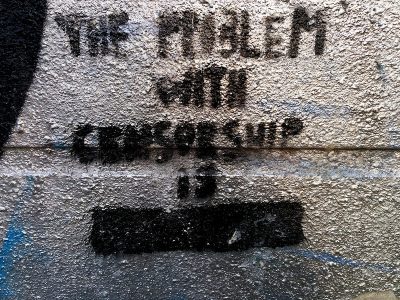The South Korea Supreme Court decided on August 23, 2012 that the Internet “real name” policy is unconstitutional.
From local media outlet, Kyunghyang Shinmun:
The judges unanimously voted that clause 5 of article 44 in the Act on Promotion of Information and Communications Network Utilization and Information Protection, which requires websites with more than an average of 100,000 visitors a day to verify the real name of the user when the person posts on the website, violated the Constitution….
The court ruling was mainly supported by the fact that the real name policy infringes the users’ right to free speech and to determine personal information, along with the operators’ freedom of speech. The court pointed out, “If we are to restrict freedom of expression, public interests we would thereby acquire must be clear.
We have yet to see a sharp decline in illegal postings, and with users fleeing to overseas websites, the policy has caused reverse discrimination between domestic and overseas businesses. Taking these factors into consideration, it is difficult to say that we have contributed to public interest.”
The conservative Grand National Party had attempted to implement the real name verification system in 2003 but failed because of public opposition. The party then enacted an election law that requires users to verify their real identities before posting comments on election-related web sites so as to to contain the influence of online media on election results. In 2007, also an election year, using the proliferation of anonymous online slander as a pretext, the government extended the real-name system to web sites with over 300,000 daily visits. But in 2009 the number was lowered to 100,000 visitors, forcing most major websites to follow the policy.
The real name verification system has been highly controversial, Korea IT Times's article in January 2012 has an in-depth analysis of the situation:
as a result of the real-name policy, South Korean web sites have become prime targets for hacking both from in and outside of the country. The number of hacking incidents reached a momentous level last year, as a series of high-profile cyber-attacks made it clear that the real-name system was untenable — the most notorious case being SK Communications’ SNS Cyworld, which leaked personal information of over 35 million Koreans, more than half of the national population. On the other hand, efforts to crack down on online discourse have been largely ineffective. In a KCC study, malicious comments accounted for 13.9 percent of all messages posted on Internet forums in 2007 but decreased only by 0.9 percentage points in 2008, a year after the regulation went into effect. The Korean government had in fact created a system which could easily be manipulated by unscrupulous politicians as well as ill-intended hackers, all in the name of public order.
The South Korean government also suffered an embarrassment when Google’s YouTube refused to comply to the real-name verification system in 2009. Stating that freedom of expression must be upheld on the internet, Google disabled video upload and comment functionalities from users accessing the site within S. Korea. Yet users only had to change their country setting in order to upload and comment on the site again, providing a legal loophole which set-off a wide debate within the country. The incident prompted the KCC to initiate a legal review, and after mulling over whether to punish Google or not, decided to exempt it from the real-name law, which added oil to the fire. Korean companies that have had to comply to the law — that had incurred web development, monitoring, and security costs — cited discrimination that put them at a competitive disadvantage to global companies.




2 comments
lovelovelovelovelovelovelovelovelovelovelovelovelovelovelovelovelovelovelovelovloveloveloveloveloveloveloveloveloveloveloveloveloveloveloveloveloveloveloveloveloveloveloveelovelovelovelovelove